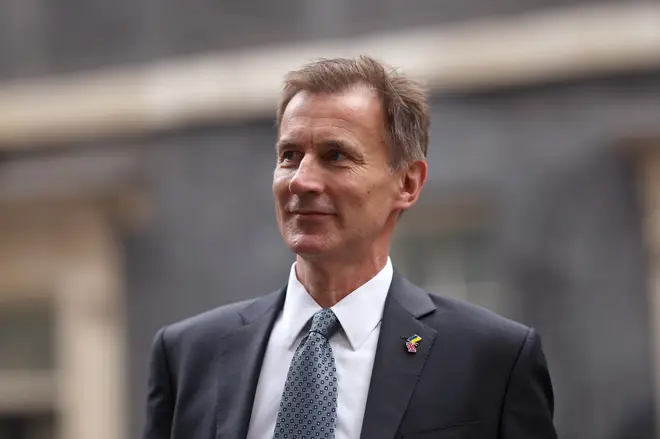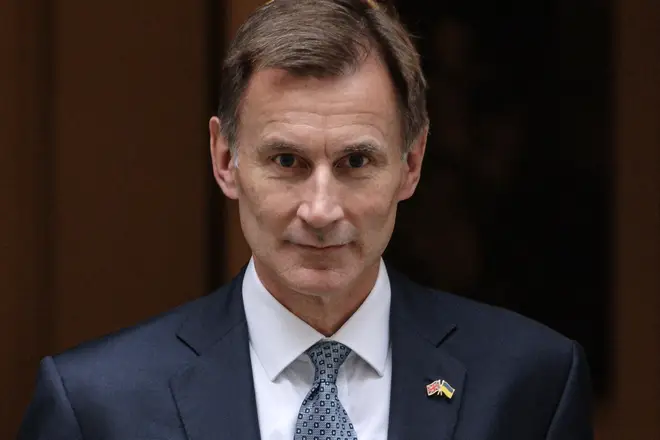
Nick Ferrari 7am - 10am
21 February 2023, 08:04 | Updated: 21 February 2023, 08:30

The UK government borrowed £30.6bn less than expected in the financial year to date, according to new figures from the Office for Budget Responsibility (OBR).
In January, there was a public sector new borrowing surplus of £5.4bn, despite "substantial spending" on energy support schemes for households across the UK.
It was a £7.1bn smaller surplus compared with January 2022 but was £5bn more than had been predicted by the OBR.
The surplus was aided by £21.9bn in self-assessment income tax receipts, the highest since monthly records began in April 1999.
Meanwhile, the payable interest on UK government debt was £6.7bn last month, the highest January figure since records began in April 1997.
Read More: Sadiq Khan announces free school meals for all primary school pupils in London

Chancellor Jeremy Hunt, who faces mounting pressure to give public sector workers pay rises, said it is "vital" that the government sticks to its plan of reducing debt.
"We are rightly spending billions now to support households and businesses with the impacts of rising prices - but with debt at the highest level since the 1960s, it is vital we stick to our plan to reduce debt over the medium term," Mr Hunt said.
"Getting debt down will require some tough choices, but it is crucial to reduce the amount spent on debt interest so we can protect our public services."
Mr Hunt will deliver his first Spring budget next month.
In January, payments to energy suppliers hit roughly £8bn as a result of the Government's price cap schemes.
It also confirmed that the fourth round of payments under the energy bills support scheme - which paid £400 to households over six months to help cut their bills - cost a further £1.9bn.